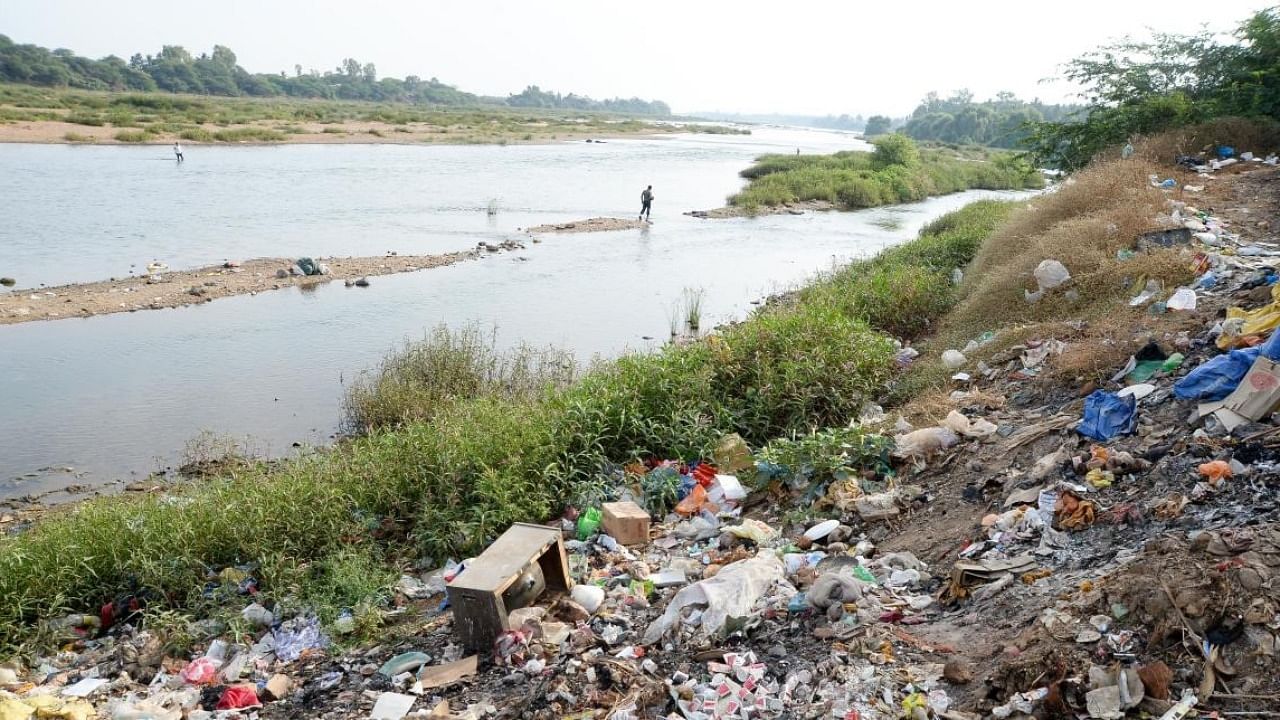
Karnataka will soon come up with a comprehensive action plan to save the 17 polluted river stretches, including those of Cauvery, Krishna and Tungabhadra, with officials coming under a spotlight for providing wrong information to a committee monitoring the cleaning up.
The state government’s promise of an action plan was made before the Central Monitoring Committee which is looking into the works, especially construction of sewage treatment plants (STP), to prevent entry of sewage into the 17 rivers, whose number has remained the same since 2018.
In its recent meeting, the central committee took note of the fact that even though two river stretches - Malaprabha and Kali - were removed from the polluted stretches, two other stretches - Dakshina Pinakini and Thenpennai - were added last month.
Sources said there were several issues with the state government’s numbers. While the Central Pollution Control Board (CPCB) states that the total sewage generated in Karnataka was 4,458 MLD, the state government estimated the number at 3,356 MLD. Even within that, 569 MLD was not being treated.
Of the 169 STPs, 12 were not operational and four didn’t comply with the standards. Even the existing STPs were not used fully with the government putting the capacity usage at 65%.
Action plan
“Considering that most of the sewage was generated from towns and cities with increasing urbanisation, the government is coming up with an action plan,” an official in the KSPCB told DH.
At the meeting, the Additional Chief Secretary, Urban Development Department, informed that the action plan would focus on solutions for all the polluted river stretches in the state. The government also reiterated its promise, made in 2021, that a Rs 1,500 crore plan was ready to treat all the sewage generated in Bengaluru.
The state government, however, told to come up with the updated data regarding the progress of the STPs. “The progress of the ongoing STPs has been either wrongly indicated or progress is stagnant since the last review,” the minutes of the meeting noted.
Rakesh Singh, Additional Chief Secretary, Urban Development Department, was not available for a comment.
No COD monitoring
Activist Nirmala Gowda, co-founder of Paani.org, said there were serious gaps in the river pollution data submitted by the government. “We have pointed out repeatedly the need to monitor the chemical oxygen demand (COD) of the polluted rivers, especially in Vrishabhavathi and Arkavathy. COD gives clear indication of the extent of non-biodegradable materials present in the river water. However, despite a direction by the National Green Tribunal, officials are yet to take it up seriously,” she said.